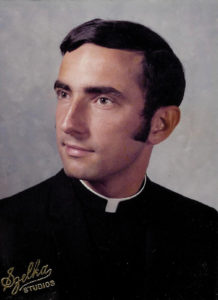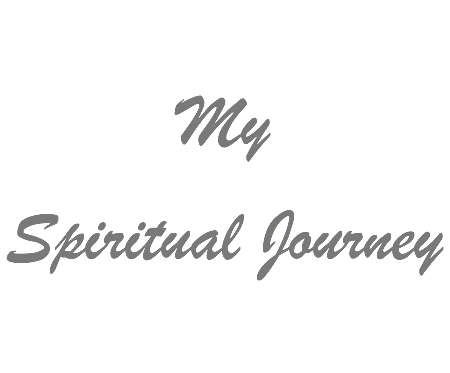Part 3: MY LIFE AS A PRIEST: 1972-1990
 I was ordained as a priest in 1972. My spirituality during my years in the major seminary and the priesthood was very Christocentric, i.e., Jesus centered. He was my model and teacher. He was at the center of my prayer life. When I celebrated Mass, I celebrated his presence in the church community. Jesus was at the center of my experience of God. A New Testament text was usually my starting point of any discursive meditation.
I was ordained as a priest in 1972. My spirituality during my years in the major seminary and the priesthood was very Christocentric, i.e., Jesus centered. He was my model and teacher. He was at the center of my prayer life. When I celebrated Mass, I celebrated his presence in the church community. Jesus was at the center of my experience of God. A New Testament text was usually my starting point of any discursive meditation.
Although nature was not part of my spirituality, I marveled at God’s creation. I enjoyed such outdoor activities as hiking, reveling in the varied terrain of the trails and, of course, the vistas near and at the top of the mountains. It was all a manifestation of God’s goodness and beauty.
When I was ordained, I no longer subscribed to the Church’s teaching that human life began at conception; but since it was only part of the Church’s “ordinary teaching,” no big deal. More importantly, I no longer believed in the dogma of the infallibility of the pope. In my studies I had concluded that the dogma of 1870 by the First Vatican Council was a defensive reaction to history. Garibaldi had united Italy. The pope had lost all the Papal States and had become “the Prisoner of the Vatican.” In addition, it seemed somewhat arrogant to me that any human could speak infallibly in the name of God. I knew that in rejecting the dogma of the infallibility of the pope I was on a slippery slope. Being a dogma, it is on par with every other Church dogma, such as that of the Trinity and of the divinity of Jesus.
For almost two decades I ministered as a Catholic priest in a happy and very meaningful life. During the first four years I worked in two parishes. I had a knack for preaching and received affirmation for that and my other ministerial responsibilities. I enjoyed working with youth, teaching high school and college extension courses, and being innovative within allowed parameters. Working some days for more than twelve hours was energizing.
In 1976 my Provincial Superior asked me to become the full-time vocation director, a position that had been vacant since 1971. Between 1971 and 1976 the Province’s three seminaries had closed; and the number of priests and seminarians was continually declining. I moved to Boston into the small seminary residence. In essence a vocation director is a recruiter and screener. At the time I was appointed it was akin to being a appointed deck master on the Titanic – after it had struck the iceberg.
By 1978 it was clear to me that being vocation director was not a full-time job; and I received permission to become the part-time Catholic chaplain at Brandeis University. In 1980, feeling frustrated and unsuccessful, I asked to be replaced as vocation director; and for a time I also did campus ministry at an all commuter college. During the final twelve years of my ministry, I felt I was at the height of my game. For example, as a college chaplain during the 1980’s, while a dramatic escalation in the nuclear arms race was occurring between the United States and the Soviet Union, I organized six annual, inter-collegiate marches of 60 to 100 students who walked from New York City or Philadelphia to Washington on “The Pilgrimage to Reverse the Nuclear Arms Race” which can be viewed on youtube.
When my ten-year term as a college chaplain ended in 1988, I received permission to become a fulltime peace pilgrim, walking from parish to parish throughout the country, stopping each weekday and weekend to talk about Christian peacemaking. It was an important and fulfilling ministry for me. During my last six years as a priest, to my Christ-centered spirituality I incorporated and lived a pilgrimage spirituality, common in the Middle Ages. My key insight from my years as a pilgrim was that arriving at my daily or final destination was unimportant compared to fully living and processing the experiences of the journey itself. For example, as I walked the roads as an unknown, the kindness of people toward a stranger continually impressed and humbled me.
